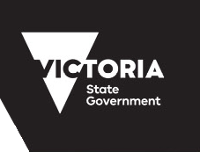Climate Change Policy Context
Australia
Australia’s Long-Term Emissions Reduction Plan
Australia’s whole-of-economy Long-Term Emissions Reduction Plan is the Australian Government’s plan to achieve net zero emissions by 2050.
Through the Plan, Australia will achieve net zero emissions by 2050 in a practical, responsible way that will take advantage of new economic opportunities while continuing to serve our traditional markets.
The Plan has focus on six critical pathways to net zero including:
- Low emissions electricity
- Electrification and efficiency
- Alternative fuels
- Carbon capture and storage
- Land based solution
- Tailored solutions for specific sectors.
Victoria
Climate Change Act 2017
In Victoria the Climate Change Act 2017, provides a legislative foundation to manage climate change risks, maximise the opportunities that arise from decisive action, and drive our transition to a climate resilient community and economy. The Act establishes a clear Victorian Government target to achieve net zero greenhouse gas emissions by 2050.
Victoria’s Climate Change Strategy
Victoria’s Climate Change Strategy sets out the current responses to climate change and next steps for further reducing emissions in Victoria. The Strategy commits to reducing emissions while creating jobs, stimulating innovation and cutting costs. It includes emissions reduction targets for 2025 and 2030 and actions that reduce emissions and build climate resilience.
The Strategy sets out emissions reduction pledges for industry sectors including energy, agriculture, landuse and forestry, waste, industrial processes and product and the whole of the Victorian government.
Victorian Climate Change Adaptation Plan
Victoria’s Climate Change Adaptation Plan will:
- Build a detailed understanding of Victoria’s exposure to climate change risks and impacts
- Accelerate partnerships for integrated and effective responses to climate change
- Tackle immediate priorities to reduce climate change risks.
The following sector-based Adaptation Action Plans will also be relevant for RCS delivery:
- Primary Production system – agriculture, productive fisheries and plantation forestry
- Built Environment system – cities, buildings, urban spaces, and infrastructure
- Education and Training system - early childhood, education, training and skills
- Health and Human Services system - disease prevention, physical and mental health care, social support and assistance
- Transport system – passenger and freight movement, transport networks and vehicles
- Natural Environment system – land, water bodies, coastal waters, biodiversity and ecological processes
- Water Cycle system - water supply, sewerage, drainage and flood management.
Agriculture Sector Pledge
The agriculture sector pledge aims to ensure farmers are prepared to achieve emissions reductions targets. This pledge will deliver foundational actions that will ensure farmers are preparing to achieve emissions reductions towards 2030. New technologies and practices will be tested for the Victorian context, and farmers will be supported to use information and tools that will help to realise emissions reduction opportunities on-farm.
Under the pledge the Victorian government will work with industry to:
- Set a long-term vision for the sector’s role in a net-zero emissions economy
- Deliver ground-breaking research, innovation and deployment of technologies and practices
- Strengthen the agriculture industry’s capability to reduce emissions
Guidelines for Assessing the Impact of Climate Change on Water Availability in Victoria , have been developed to provide tailored guidance on how to apply climate science for water resource decision making. The Guidelines also promote a consistent approach to climate change impact assessment across the water industry.
Regional
West Gippsland Regional Natural Resource Management Climate Change Strategy
The West Gippsland Regional NRM Climate Change Strategy, remains a relevant guide for climate action in our region. This strategy describes the implications of climate change for Land, Water, Biodiversity and Coast and Marine. It maps the relative vulnerability of waterways and remnant native vegetation across the region and its carbon potential. A range of adaptation and mitigation actions have also been identified.
Gippsland Regional Climate Change Strategy
The Gippsland Regional Climate Change Adaptation Strategy, is being supported by Department of Environment Land Waster and Planning (DELWP). The Strategy will guide priority climate change adaptation actions at the regional scale, for the next five years. The strategy has been divided into the following ten focus areas:
- Natural environment
- Water
- Cultural heritage and cultural values
- Emergencies and emergency management
- Agriculture
- Health and human services
- Built environment
- Community
- Knowledge
- Regional economy.
The strategy is currently being finalised and is due to be released later in 2021.



